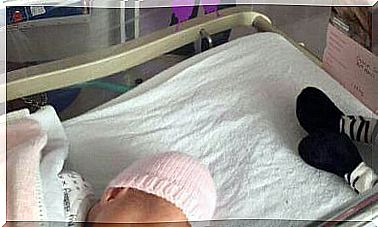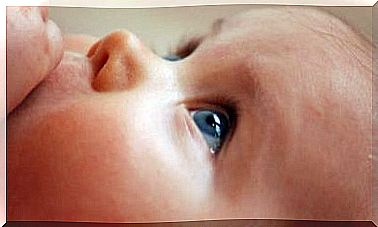Vitamin D Deficiency In Women

Vitamin D is extremely important for various body systems. UV-B radiation converts a form of cholesterol into vitamin D in the upper layer of the skin, which is then transported to the cells via the blood. However, a vitamin D deficiency in women can have very negative effects.
Vitamin D cannot only be synthesized through exposure to the sun. There are also several foods that contain this vitamin.
Even if a vitamin is usually spoken of, it is actually a precursor of a hormone that enables many other hormones to be built up.
Women in particular should make sure that they are not deficient in vitamin D , especially if they are pregnant or breastfeeding their baby. Deficiency could have detrimental effects on the development of the fetus, the immune system and the bones.
Then we’ll explain how to effectively identify subtle signs of vitamin D deficiency.
If you observe these symptoms in yourself, you must definitely see a doctor. They can do a blood test to see if your vitamin D levels are actually low. Don’t forget: around 50% of the German population suffers from a vitamin D deficiency!
Risks of vitamin D deficiency in women
The bulk of this vitamin is synthesized in the body. Sun exposure enables the conversion of 7-dehydro-cholesterol in the upper layer of the skin to vitamin D3. But the vitamin can also be absorbed through diet.
It is found in particular in fatty fish, cod liver oil and various plants (e.g. mushrooms).
A deficiency in vitamin D is a health risk for women. Some symptoms are clear, but can be confused with other symptoms. For example, chronic bone, joint or muscle pain and depression or fatigue.

1. Hypertension
High blood pressure is a very common ailment. This goes hand in hand with an increased risk of cardiovascular diseases. Vitamin D also plays an important role here. This is because cardiovascular diseases caused by increased blood pressure can be prevented.
A vitamin D deficiency has a very negative effect on blood pressure. Therefore, it is often a good idea to take a nutritional supplement to improve blood pressure. In this case, seek advice from your doctor!
2. Depression
The lack of vitamin D could also trigger depression. There is actually a close link between low vitamin D levels and symptoms of depression. This vitamin also plays a fundamental role in serotonin synthesis.
3. Fatigue and drowsiness
One of the most important tasks of vitamin D is to support the body in absorbing calcium. It also helps against tiredness and stimulates the immune system. A lack of vitamin D therefore also leads to drowsiness and exhaustion.
As a hormone, vitamin D plays a key role in metabolism and the immune system. It is also important for the quality of sleep.

4. Bones and joints
Joint pain is very common in women as a result of vitamin D deficiency. With this vitamin, muscle and bone pain can be relieved!
Vitamin D is very beneficial for women’s health as it promotes healthy muscles, makes them stronger, and reduces the risk of falls and breaks.
It can also help you lose weight and prevent bone problems such as osteoporosis. This disease occurs particularly after menopause, as less estrogen is produced at this stage of life.
Finally, it should be mentioned that you should eat healthily and that a short, responsible sunbathing is recommended every day in order to synthesize sufficient vitamin D.
How much sun you need depends on the intensity of the radiation and your skin type. It is best to seek advice from your doctor to prevent vitamin D deficiency.









